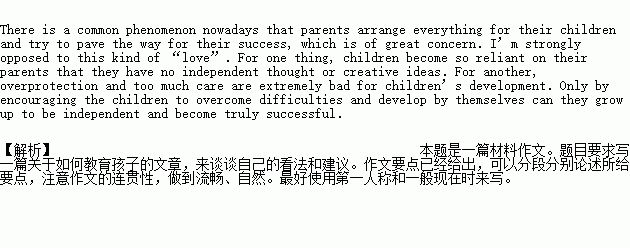ΧβΡΩΡΎ»ί
Ά≈Ε”ΚœΉς(teamwork)‘Ύœ÷¥ζ «Ζ«≥Θ÷Ί“ΣΒΡΓΘ«κΗυΨί“‘œ¬“ΣΒψΘ§Φρ“Σ–¥“ΜΤΣΙΊ”ΎteamworkΒΡ―ίΫ≤ΗεΘ§≤Δ±μΟςΡψΉ‘ΦΚΒΡΩ¥Ζ®ΓΘ¥ ΐ≤Μ…Ό”Ύ80ΓΘ
ΓΣΓΣΈΣΚΈ÷Ί“ΣΘΚ
1Θ° «―ßœΑΚΆΙΛΉς±Ί–ηΒΡΡήΝΠΘΜ
2Θ°Ω…ΫΎ Γ ±ΦδΘ§ΨΪΝΠΘ§Ή ‘¥ΘΜ
3Θ°±Υ¥Υ”–ΜζΜαœύΜΞ―ßœΑΘΜ
ΓΣΓΣΚœΉςΕ‘œσΘΚ
1Θ°”κ÷ΨΆ§ΒάΚœΒΡ»ΥΚœΉς»ί“ΉάμΫβΘ§Ά§Η Ι≤ΩύΘ§–Ρ«ι”δΩλΘΜ
2Θ°”κΚΆΉ‘ΦΚ≤ν“λΫœ¥σΒΡ»ΥΚœΉςΩ…“‘―ßΜαΩμ»ίΘ§≤Δ―ßΜαΖΔΨρ±π»Υ”≈ΒψΓΘ
ΉΔ“βΘΚ―ίΫ≤ΗεΒΡΩΣΆΖΚΆΫαΈ≤“―Ηχ≥ωΓΘ
Good morning, everyone! My topic today is ΓΑTeamworkΓ±Θ°
_______________________________________________________
_______________________________________________________
_______________________________________________________
_______________________________________________________
_______________________________________________________
_______________________________________________________
Thanks for your listening!


 D. shouldnΓ·t
D. shouldnΓ·t